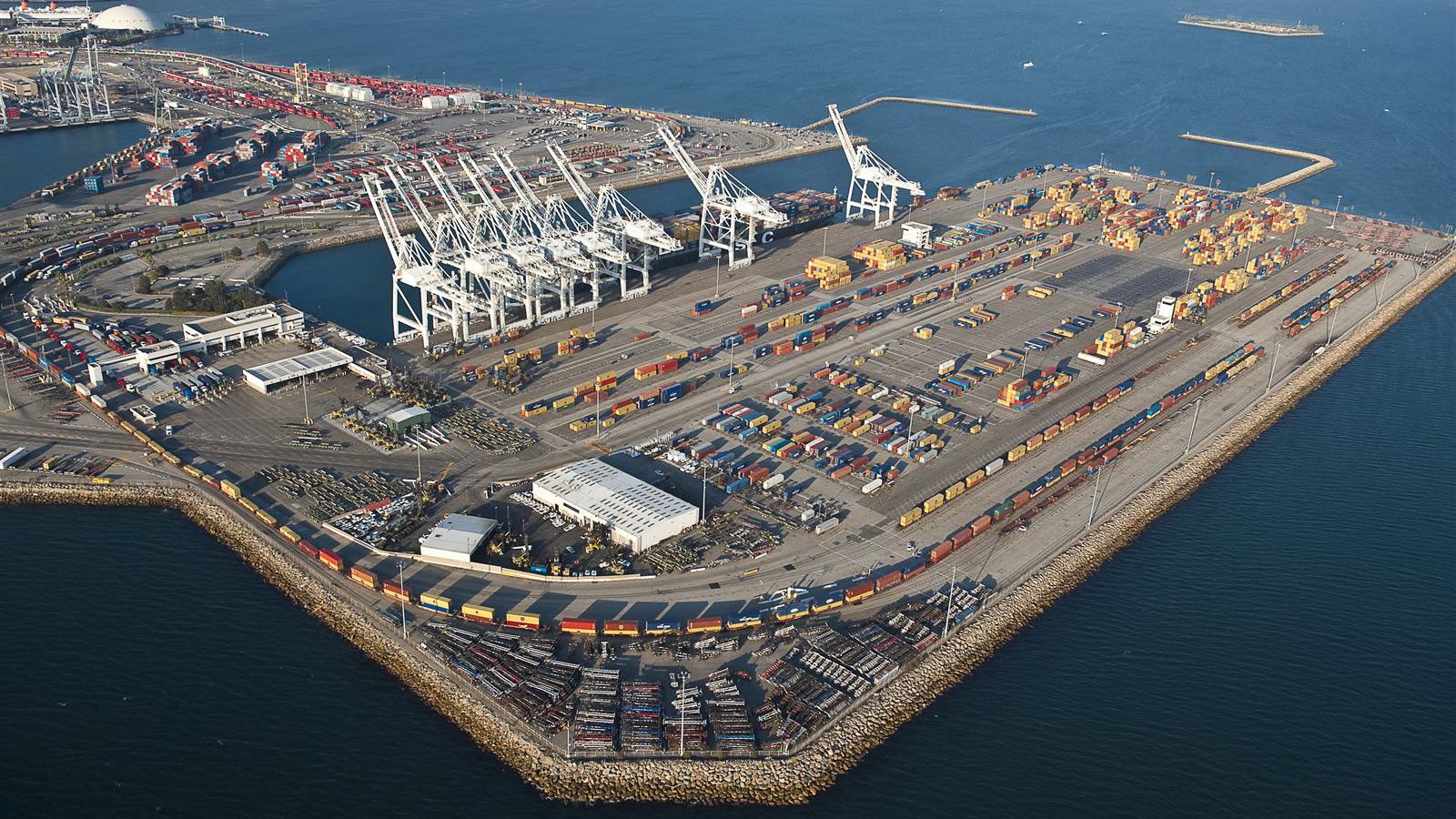Terminal Operators Seek Changes to LA Clean Air Plan

The Pacific Merchant Shipping Association (PMSA), a non-profit group that represents West Coast terminal operators and shipowners, has called for changes to the Clean Air Action Plan (CAAP) put forward by the ports of Los Angeles and Long Beach.
Taken on their own, the ports are the first and second-busiest by container volume in the United States, and they are directly adjacent to each other on LA's San Pedro Bay. They compete for business, but they cooperate on overlapping policy areas - including air pollution, an important issue in the smog-prone LA area. Their joint CAAP proposal calls for a zero-emissions drayage fleet by 2035; zero-emissions terminal equipment by 2030; more shore power stations; and changes to the incentive structures for slow steaming and Tier 2-plus engines. The goals would require the deployment of 100,000 zero-emissions vehicles over the next 15 years, and the total cost would be in the range of $14 billion, according to an estimate prepared for the ports. The Port of Los Angeles and terminal operator Pasha are already trialling electric forklifts, yard tractors and drayage equipment that could be used to fulfill the requirements.
Given the expense of the plan, PMSA expressed concerns about the proposal's impact on competitiveness. While LA and Long Beach still lead for volumes, they have not experienced significant growth over the past decade, PMSA said - a consequence in part of the increasing market share of East Coast ports following the Panama Canal expansion and the West Coast dockers' strikes of 2014-15. PMSA called for the CAAP to integrate a "competitiveness goal" alongside its environmental goals.
PMSA was also concerned about the zero-emissions vehicle goals and the expanded use of shore power. It called on the ports to include a pathway for ultra-low emission technologies in addition to electrification in order to keep costs at a competitive level. For shore power, PMSA asked for an at-berth regulation that takes cost into account and avoids cargo diversion, and it called on the ports to leave out new fees for vessels with Tier 0 and Tier 1 engines.
